- Home
- Patricia McLinn
Death on Torrid Ave. Page 2
Death on Torrid Ave. Read online
Page 2
From the far side of the small-dog enclosure, he raced toward the vestibule, emitting the gruff bark of his breed, as if they’re rolling r’s with abandon.
Reaching the gate, he jumped straight up. It felt like he’d reach my eye level any second. In between spates of jumping, he ran in crazy circles, fancied up with shoulder rolls and spins. All the while barking.
He didn’t sound vicious, just insane.
Barely audible over Marcus came the already all-too-familiar human voice. “Don’t let her wrap around you like that. It’s what Bob says—”
Clara and I exchanged eye-rolls.
But then I had to refocus on Gracie. Not only because I’d told her to sit and it’s vital to follow through on a command — otherwise you train your dog to ignore you, according to ninety-two percent of the eighty-seven dog training books I’ve read, not to mention dozens of videos watched, plus the class we’re attending at the local pet store — but also because she’d started a boa constrictor number on my legs.
I clicked my tongue. Maybe that caught Gracie’s attention. Or my earlier words percolated through her excitement to her listening center. Or she ran out of leash and was as stuck as I was. Whatever the cause, Gracie sat and looked up at me.
“Good girl.” With one hand, I started her back the opposite direction. She made it around several times, but each revolution seemed to stretch her patience more. At the end, I pivoted to speed the process.
“If you’d listened to what Bob told you the first time you came here, you’d have much better control of your dog. He’s so generous with his knowledge and expertise. You shouldn’t—”
I ignored Berrie by bending to unhook the leash from Gracie’s collar.
“Ready?” Clara asked. She already had LuLu unhooked. LuLu had completed two training courses and although she danced a bit, she held her position. Clara’s hand was on the gate’s latch.
“Gracie, wait,” I ordered.
Clara opened the gate. We silently counted together. Right at three, and a millisecond before Gracie bolted, we both said, “Okay.”
The dogs sprang forward, leaping and twisting. Gracie emitted one ecstatic bark, and they were off at full speed.
“See you later, Berrie!” I called, as if she’d only said hello.
Still under the cover of Marcus’ noise, Clara returned to her earlier subject. “What new dog is a lab mix named Murphy loping over to meet our girls. And the new guy is the one who’s by our table.” Each enclosure held two or three roof-covered picnic tables and we favored the one farthest from the enclosure Berrie was in.
But I didn’t look at the table. I searched Bob’s and Dwight’s locations.
Bob — in his knee-high boots, tweed cap, and jacket with dark fabric across the shoulders suitable for shooting in the English countryside — was to our far left, along the fence to the other small-dog enclosure, which was empty. Dwight — with his University of Kentucky baseball cap under the hood of an aged UK blue jacket, and ever-present blue and white hand-knit scarf with foot-long fringe — was almost as far to our right, standing on the slight rise looking down into the out-of-sight Las Vegas dip.
Good news. We wouldn’t be called on for peacekeeping.
I took two steps across the concrete pad inside the enclosure. Marcus turned off like I hit the power button on his remote.
Dropping her voice as we stepped off the concrete into mud generally too churned by dog feet to freeze, Clara continued, “They were here yesterday. I met them then. Murphy’s a lab, maybe a lab mix. See? Over there. Green coat.”
To my relief, Clara meant the guy, not the dog, wore a green coat.
The dog was golden colored except for splashes of white on its toes.
The guy wasn’t by our table, he was sitting on it. That didn’t bother me any. Not only was February not the time to think about eating off its surface, but we mostly sat on the top, too, because as I’d seen when a brief warm spell brought out more dogs, the table’s lower regions were a favorite peeing target for males. Canines, that is.
“He’s just moved to the area.” Clara talked fast, getting in her information before even our lackadaisical pace brought us within the guy’s hearing. “Donna talked to him and said he has some experience with dogs and common sense. His lab mix is a sweetheart. She also said the guy’s quite nice.”
“Lab mix? Not all lab?” I asked.
“I didn’t ask specifically,” Clara said. “But he’s tall and long for lab. Plus the white on the toes probably indicates not a purebred, don’t you think?”
My knowledge of Labrador retriever DNA and breed confirmation logged in at barely above zero.
“Berrie said she encountered Murphy with the Bostons in the entry the day before yesterday and he was well behaved.”
I suspected that was more than could be said for the Bostons. They were friendly to humans — with the Marcus-and-me exception — but renowned at the dog park for bullying other dogs. In particular, mild-mannered bigger dogs. Not-so-mild-mannered bigger dogs they left alone.
They’re not stupid.
As much as Berrie critiqued other owners’ techniques, she apparently saw nothing worth commenting about in her dogs’ behavior.
That left the possibility that Berrie’s impression of good behavior on the part of this lab mix might have been abject terror.
“Oh, look,” Clara said again. “LuLu and Gracie seem to be getting along with the new dog.”
After the Hi, how are you interlude, including the requisite close and personal smelling, Gracie had bounced away, looking back over her shoulder, inviting the newcomer to her favorite game.
This could test the lab mix’s amiability. Gracie did her best to live up to her heritage as a herding dog by chasing her dog park buddies and herding them to whichever corner struck her fancy. With LuLu, she added a bit of mild neck chewing if she didn’t obey fast enough.
Yes, my dog was bossy.
But in a cute way. Really.
Not at all like the Bostons. That’s not bias. Other owners had said so.
As Donna said, Gracie waited until she was friends with a dog before bossing it around, which made it play. “Except for the German shepherd who keeps trying to mount her and she keeps telling him to knock it off — that she means,” Donna told me. “He just hasn’t caught on yet.”
Clara was kind enough to refer to Gracie as the park’s referee. And it’s true she would get between scuffling dogs, barking in reprimand, and generally trying to bring order.
In public I went along with Clara’s description of her as the referee.
Privately, I chided Gracie. When a female is already a bitch by definition, it doesn’t hurt to add a little kindness, I informed her. It might not be fair, but it’s true.
Listening to myself, I felt like I’d channeled my great-aunt Kit, with whom I’d shared a Manhattan brownstone and a secret life for the past decade and a half. Though Kit wouldn’t have waited for private to make her pronouncement.
The other dogs did not seem to mind Gracie’s bossiness, not even the German shepherd who still hadn’t accepted Gracie’s Not Interested.
Perhaps the other dogs accepted Gracie’s bossiness because she never competed for the various balls thrown around. Retrievers chased balls, Gracie chased retrievers. Seemed to work for everyone.
Clara and I halted some distance from the table to watch the dogs.
I pulled my right hand free of its glove-then-mitten covering to tighten the drawstring on my parka hood, which came loose during Gracie’s ring-around-the-owner exercise. My eyebrows had started to freeze.
“Your nails look wonderful,” Clara said.
I looked around, then saw her looking at my hand. I followed her gaze and experienced a spurt of surprise.
I’d forgotten.
I have strong nails that get too long to be neat without manicures. Until becoming the public face for Abandon All, I hadn’t been able to afford manicures. After, my duties kept me busy
enough that I rarely took the time.
Yes, there it is.
My big secret.
I was the person the world knew as the author of Abandon All, the biggest blockbuster novel and movie of the past couple decades. Under a different name. And under false pretenses, since my great-aunt Kit, a career novelist, actually wrote the book.
The masquerade was her idea.
So was her retirement and selling the Manhattan brownstone we’d shared this past fall. In other words, she started me on this new life.
One where I had time to contemplate Huck Finn, dog park mores, and secrets, truth, and lies. One where I also moved to Kentucky, bought my own house, adopted a rescue collie, and had a manicure.
A whole new world.
The hitch is that the now me not be outed as the Abandon All me. Or I’ll have no chance to find out who the non-Abandon All me is.
“Thank you.” I held up my hand to admire it. “I treated myself to a manicure. My nails are usually long and raggedy.”
“Mine are never too long. Good for you for getting a manicure. I tried to, too, for a while. Ned urged me to include it in the monthly budget, that sweet man. But in the last year of my mother-in-law’s illness and then with a new dog…”
As I nodded — acknowledgement both of how caring for her mother-in-law wouldn’t have allowed time for manicures and how hard dogs were on manicures — I noted a bemused half grin on the new guy’s face. He’d clearly been eavesdropping. Just as clearly, he didn’t get manicures.
Not in either sense of get — having one himself or understanding the ins and outs of them. He appeared amused by his lack of comprehension.
“Hi, Teague,” Clara called to him, raising a hand in greeting. “Looks like we might have a three-way bond forming here.”
Our gazes met for an amiable instant, then naturally shifted to our dogs.
They made quite a trio. Gracie’s coat, with variations of browns to golds, as well as white and touches of black, bridged LuLu’s pale buff and his dog’s deeper golden.
But that was temporary. They’d all be mud colored soon.
“What’s your dog’s name?” I asked as Clara and I sat on the table-top, hip-length jackets tucked carefully under derrieres, feet on the bench.
“Murphy.”
“Ah, a male.”
“Neutered,” Clara said immediately. “Stray. About two years old. He’s had him about six months. His second rescue.”
“Pretty much covers it. The collie’s yours?” he asked me.
“Uh-huh. Gracie. Rescue. Best guess is under a year old. I’ve had her a month. First dog of my own.” Answering the usual dog park questions all at once saved a lot of time.
Watching the dogs, I didn’t see his expression, but heard his grin. “Now that the important stuff is covered, I’m Teague O’Donnell.”
“Teague as in rhymes with League,” Clara said.
“Teague O’Donnell,” I repeated. “Italian, huh?”
He laughed, then tried to deadpan. “Pure Sicilian. You?”
“Oh my gosh.” Clara clapped her thickly covered hands, creating a dull whumph. “I should have introduced you two. I’m so sorry.”
“No worries, Clara. We’ll go self-service,” I said. He removed his glove and extended his hand to me. Without removing the coverings protecting my skin from frostbite, I met his grip. “Call me Sheila M.”
“Call you Sheila M.?” His mouth quirked. He also held onto my hand. No way that made a physical impression through the mitten-covered gloves I wore, yet it had an impact. I’d have to make a big deal of it to withdraw my hand. I could — would — if necessary, but for the moment, I was suspended, judging the necessity. “Sounds like an alias, as if Sheila isn’t your real name.”
Clara laughed, “She always says that — Call me Sheila M.” She laughed again. “Let me do this proper now. Sheila Mackey meet Teague O’Donnell. That’s his dog, Murphy. He’s a substitute teacher and tutor for the high school.”
I withdrew my hand.
Great.
A high school teacher.
I’d thought my cover story had been so brilliant. And here I was, barely a month into it, meeting somebody who actually did what I claimed to have retired from … from which I claimed to have retired.
To pass as an English teacher I’d have to watch my grammar. Abandon All used enough informal structures that I’d never worried about proper grammar in interviews, lectures, and appearances.
I mentally added this guy to a stay-away-from list that had been blessedly empty until now.
Unfortunately, staying away from him might be trickier than it sounded, since Gracie, LuLu, and Murphy were frolicking like they’d come from the same litter.
“Oh, aren’t they cute,” Clara cooed. “They’ll never want to be separated.”
CHAPTER TWO
“Clara told me yesterday how she took care of her ill mother-in-law for so long and her husband’s insisting she takes a good break and that’s why she can be here with LuLu every day. What do you do, Sheila, that lets you bring Gracie to the dog park daily?” Teague asked.
What was with this guy and questions?
He’d already pelted me with several. Native or not? How long I’d lived here? What brought me here? House or apartment? And more. I’d answered a few, sidestepped most.
Before I could — or had to — answer this one, we heard raised voices from near the picnic table on the opposite side of our enclosure.
Turning toward the voices — Bob and Dwight — meant squinting into stinging sleet.
Darn. It was always easier to keep the peace if you kept the two of them separated. But we’d been distracted and Bob must have gotten past us. Because he was now over by Dwight.
In a loud, sneering tone, Bob Coble flung out a dismissive arm. “You have no control over that animal.”
“They’re getting worse, and worse.” Clara tipped her head toward Dwight and Bob. If they’d been paying attention, they’d have known she was talking about them no matter how low her voice. As it was, they were too intent on arguing to catch head tips. “The dogs are picking up on the tension.”
Since our three dogs trotted along the fence line, happily trying to get three big dog mouths on a five-inch stick, punctuated by dramatic sound effects, I assumed she meant Dwight’s and Bob’s dogs, not ours.
Skeeter and Trevalyn milled around their owners, looking up at the angry faces.
“Go to hell,” Dwight snapped back.
“Look, look,” Bob crowed triumphantly. “He broke hold. Right there. That’s what I mean.”
I expected Dwight to jump on the fact Bob’s dog, Trevalyn, wasn’t holding, either.
“You’re an—” Dwight said a word I hadn’t heard him or anyone else use at the Torrid Avenue Dog Park. I’d heard it frequently on TV and in Manhattan, including from tots at playgrounds, but it shocked me here.
Perhaps it shocked Dwight, too, because he turned, the fringe swinging on the scarf I’d never seen him without, and walked away from Bob.
That surprised me, too. These arguments usually ran a lot longer than this, touching on wide-ranging areas of dog grooming, feeding, naming, and more, in addition to training.
“Those two always like that?” Teague asked.
“Sometimes it’s worse,” Clara said. “If their various followers are around, they pile in, too. Plus, an audience gets those two more wound up. This was short.”
Over the past weeks, I’d heard them argue about the ideal way to hook a leash, doggie seatbelts vs. other car restraints, whether saying “no” was an aversive, and more.
I couldn’t take it too seriously. It was chest-puffing, steam letting-off, schoolyard antics for supposed grown-ups.
Though it certainly made the dog park more pleasant when they didn’t interact. Better yet, when neither was here. I wondered if Clara’s petition idea stood a chance.
Clara told Teague about last week, when she and I listened as a dust-up bet
ween Dwight and Bob over whether deli turkey or home-cooked chicken was the better treat.
Donna stopped the deli turkey-home-cooked chicken feud by whacking each of their puff-coated arms with a doubled over leash and telling them to knock it off.
Now, Clara said exactly what I was thinking. “Too bad Donna isn’t here.”
“She’s one of the few who can cool their ardor,” I added.
“Are you saying passions run high at Torrid Avenue Dog Park?” asked this new guy with an amused glint in his light green eyes. “Appropriate, considering the address.”
“Exactly. Although the passions tend to focus on fur rather than romance,” Clara said.
I followed with, “Making the passions even more fervent.”
After we’d all chuckled, he said, “Before those two interrupted, you were telling me what you’re doing at the dog park, Sheila.”
“Freezing.”
He gave a half-smile. Something about it left me unsettled. “I meant how can you be with Clara on weekdays. I come when there’s no substituting job. Some folks work nights, some are retired. Clara is resting up after a long stint of caregiving. What about you?”
Before I could say anything to push back — politely, but definitively — against his nosy question, Clara said cheerfully, “Oh, Sheila’s so fortunate. She came into an inheritance.”
“Did she?” His tone added to my unsettled feeling.
It had no impact on Clara. “I mean, not fortunate, because to inherit, someone else has to die, but in this case it was quite a distant relative she hardly knew, but they were the only ones in the family named Sheila, and she’d lived a long time — the relative I mean — and the inheritance let Sheila quit her job and move here for a more relaxing life. Though with all the house projects she has going—”
“What kind of job did she quit?”
Was it my imagination or was this guy incredibly nosy? True, Clara only told him things I’d willingly told her at the start of our acquaintance, but she hadn’t grilled me the way he was.
Plus, she’d accepted anything I’d said.
Either my imagination had jumped to paranoia or Teague O’Donnell was not totally accepting. Not into full-blown suspicion, but a pervasive film of skepticism.

_preview.jpg) Almost a Bride (Wyoming Wildflowers Book 1)
Almost a Bride (Wyoming Wildflowers Book 1)_preview.jpg) Prelude to a Wedding (The Wedding Series Book 1)
Prelude to a Wedding (The Wedding Series Book 1)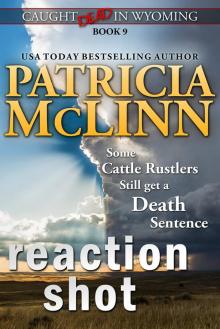 Reaction Shot (Caught Dead in Wyoming, Book 9)
Reaction Shot (Caught Dead in Wyoming, Book 9)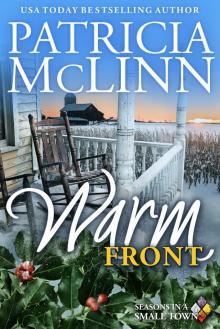 Warm Front
Warm Front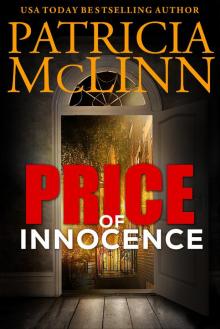 Price of Innocence
Price of Innocence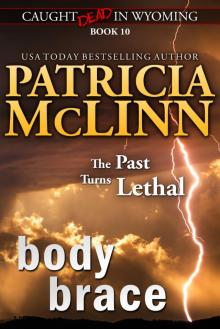 Body Brace (Caught Dead in Wyoming, Book 10)
Body Brace (Caught Dead in Wyoming, Book 10)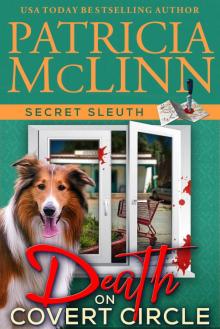 Death on Covert Circle
Death on Covert Circle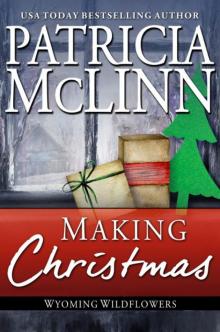 Making Christmas
Making Christmas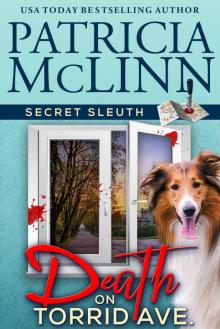 Death on Torrid Ave.
Death on Torrid Ave. Death on the Diversion
Death on the Diversion The Rancher Meets His Match
The Rancher Meets His Match Widow Woman
Widow Woman The Runaway Bride
The Runaway Bride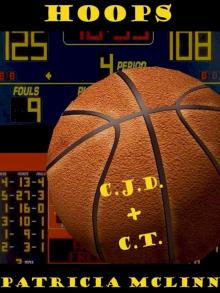 Hoops
Hoops A Stranger in the Family (Book 1, Bardville, Wyoming Trilogy)
A Stranger in the Family (Book 1, Bardville, Wyoming Trilogy)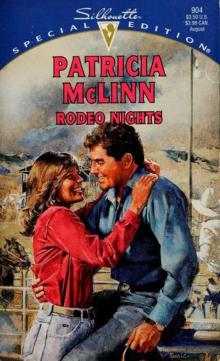 Rodeo Nights
Rodeo Nights Wedding Series Boxed Set (3 Books in 1) (The Wedding Series)
Wedding Series Boxed Set (3 Books in 1) (The Wedding Series)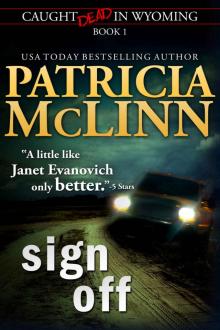 Sign Off (Caught Dead in Wyoming, Book 1)
Sign Off (Caught Dead in Wyoming, Book 1) Prelude to a Wedding
Prelude to a Wedding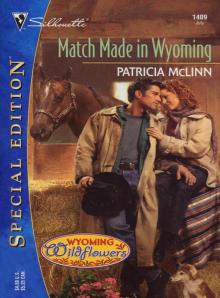 MATCH MADE IN WYOMING
MATCH MADE IN WYOMING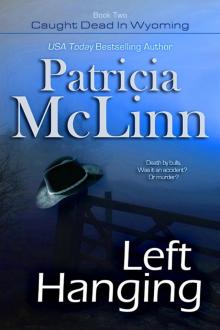 Left Hanging
Left Hanging What Are Friends For?
What Are Friends For?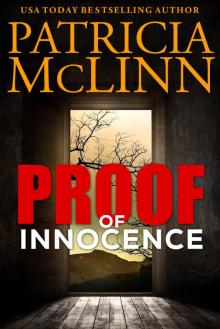 Proof of Innocence
Proof of Innocence Hidden in a Heartbeat (A Place Called Home, Book 3)
Hidden in a Heartbeat (A Place Called Home, Book 3) Baby Blues and Wedding Bells
Baby Blues and Wedding Bells Least Likely Wedding?
Least Likely Wedding? Heart Stealers
Heart Stealers Grady's Wedding
Grady's Wedding Right Brother
Right Brother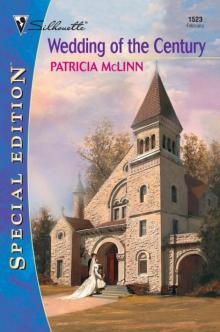 Wedding of the Century
Wedding of the Century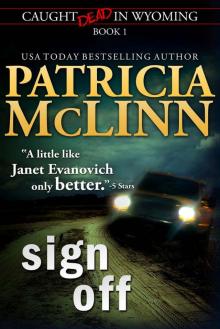 Sign Off
Sign Off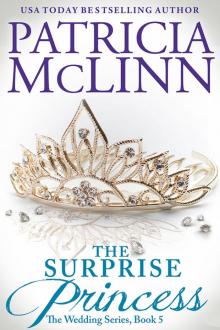 The Surprise Princess
The Surprise Princess Wyoming Wildflowers: The Beginning
Wyoming Wildflowers: The Beginning